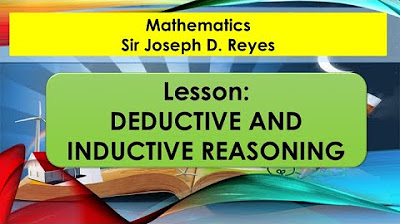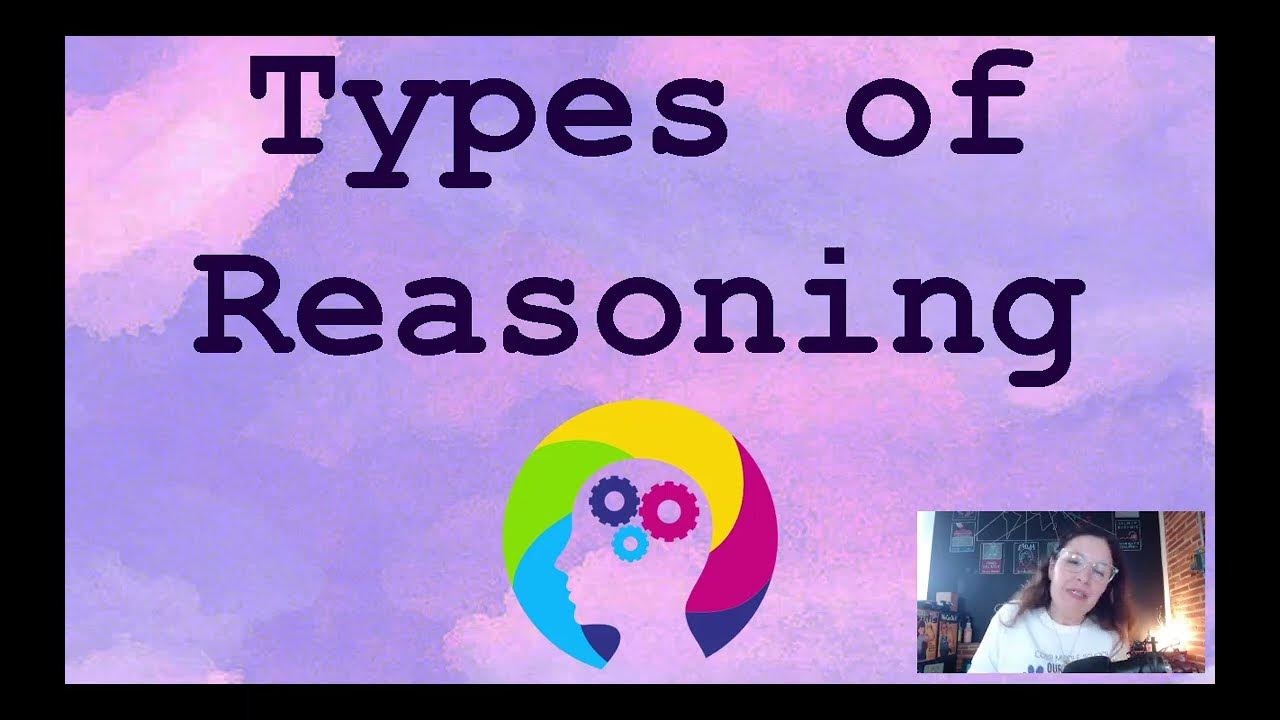Kupas Tuntas Cara Menentukan Penarikan Simpulan Penalaran Umum TPS UTBK 2020
Summary
TLDRThis video delves into the principles of drawing conclusions, a common topic in general reasoning tests. The presenter explains key concepts such as modus ponens, modus tollens, and syllogisms, using examples to illustrate how conclusions are derived from premises. The video also covers rules for making general and particular conclusions, as well as how to handle negative premises. The presenter guides viewers through sample questions and encourages practice with provided exercises, offering tips for those preparing for reasoning exams.
Takeaways
- 📚 Understand the concept of drawing conclusions (penarikan simpulan), which is crucial for solving general reasoning problems (aspek penalaran umum).
- 🔎 Modus Ponens: If 'If P then Q' and 'P' are true, then 'Q' must be true. Example: If the track is slippery (P), many racers fall (Q).
- 🔄 Modus Tollens: If 'If P then Q' is true and 'Q' is false, then 'P' must be false. Example: If the weather is clear (P), the race is held (Q). If the race is not held (not Q), then the weather is not clear (not P).
- 🔗 Syllogism: If 'If P then Q' and 'If Q then R' are true, then 'If P then R' is true. Example: Completing teacher education (P) leads to getting a degree (Q), which allows one to apply for CPNS (R).
- 🔢 Universal Premise: A general premise includes a universal quantifier ('all'). Example: All animals need oxygen.
- 🧩 Particular Premise: A particular premise includes an existential quantifier ('some'). Example: Some CPNS applicants submit a legalised copy of their diploma.
- 🚫 Negative Premise: A negative premise contains negation ('not'). Example: Some ministries do not require a fine for withdrawing participants.
- 🔄 Conclusion Rules: If all premises are universal, the conclusion must also be universal. If any premise is particular, the conclusion must be particular. If any premise is negative, the conclusion must also be negative.
- 🔍 Example Analysis: All solvents are swimmers (universal), some swimmers are not divers (particular), conclusion: Some solvents are not divers.
- 📏 Practice: Use provided examples and exercises to practice drawing conclusions correctly, applying the rules of universal, particular, and negative premises.
Q & A
What is 'modus ponens' in the context of drawing conclusions?
-'Modus ponens' is a logical rule where if the first premise states 'if p then q' and the second premise states 'p', the conclusion is 'q'. For example, if 'the track is slippery, then many racers will fall', and 'the track is slippery', the conclusion is 'many racers will fall'.
How does 'modus tollens' differ from 'modus ponens'?
-'Modus tollens' is a logical rule where if the first premise states 'if p then q' and the second premise states 'not q', the conclusion is 'not p'. For example, if 'if the weather is clear, the race will be held', and 'the race is not held', the conclusion is 'the weather is not clear'.
What is a syllogism in logical reasoning?
-A syllogism is a logical argument where a conclusion is drawn from two premises. For example, if 'if p then q' and 'if q then r', the conclusion is 'if p then r'. This shows a chain of reasoning linking multiple statements.
What defines a 'general premise' in logic?
-A general premise is one that includes a universal quantifier, indicated by words like 'all'. For instance, 'all animals need oxygen' is a general premise because it applies universally to all animals.
What is a 'particular premise'?
-A particular premise includes an existential quantifier, indicated by words like 'some', 'several', or 'a few'. For example, 'some animals are mammals' is a particular premise because it only applies to a subset of animals.
What is the rule for conclusions when one premise is particular?
-If one of the premises is particular, the conclusion must also be particular. For example, if 'all applicants submit copies of their diplomas' and 'some applicants submit original police clearances', the conclusion is 'some applicants submit copies of their diplomas and original police clearances'.
What is the rule for conclusions when one premise is negative?
-If one of the premises is negative, the conclusion must also be negative. For instance, if 'all ministries open civil servant positions' and 'some ministries do not require a fine for withdrawal', the conclusion is 'some ministries that open civil servant positions do not require a fine for withdrawal'.
How do you determine if a conclusion should be general or particular?
-The conclusion should be general if all premises are general. If one or more premises are particular, the conclusion should also be particular. This ensures the conclusion accurately reflects the scope of the premises.
Can you give an example of a negative conclusion?
-Yes, for example, if 'all students in class A speak English' and 'some students in class A do not get high grades', the conclusion is 'some students in class A do not get high grades and speak English'.
What is an example of a conclusion derived from a general premise?
-If 'all doctors are professionals' and 'all residents are doctors', the conclusion is 'all residents are professionals'. This conclusion is general because both premises are general.
Outlines

此内容仅限付费用户访问。 请升级后访问。
立即升级Mindmap

此内容仅限付费用户访问。 请升级后访问。
立即升级Keywords

此内容仅限付费用户访问。 请升级后访问。
立即升级Highlights

此内容仅限付费用户访问。 请升级后访问。
立即升级Transcripts

此内容仅限付费用户访问。 请升级后访问。
立即升级浏览更多相关视频

DEDUCTIVE AND INDUCTIVE REASONING | TAGLISH

Seri 6 Penalaran Hukum: INFERENSI INDUKSI DAN DEDUKSI

Apa Itu Penalaran Umum | Skolastik | Alternatifa

Types of Reasoning - Deductive, Inductive, and Abductive

3.3 | INDUCTIVE VS DEDUCTIVE REASONING | MATHEMATICS IN THE MODERN WORLD | ALOPOGS

MMW - Chapter 3 - Problem Solving and Reasoning (Part 1)
5.0 / 5 (0 votes)
